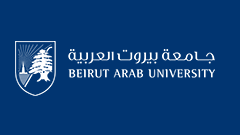French Title
CULTURE ET RÉCONCILIATION POST-GUERRE : DE L’OPTIMISME À LA RÉSILIENCE
Author ORCID Identifier
Michel Abou Khalil - https://orcid.org/0000-0002-6727-5151
Abstract
Culture and Post-War Reconciliation: from Optimism to Resilience. At the end of the civil war, Lebanon tried to rebuild itself but fairly quickly wars, assassinations, repeated political crises and an influx of refugees weakened it. From 2019, it is downright descent into hell with an aborted popular revolt and a whole series of financial, economic and health disasters culminating in the explosion of August 4, 2020, which transformed it into a true martyr nation. Once again, the Land of the Cedars falls back into the cycle of the absurd, even into the circularity of the myth of Sisyphus, going so far as to relive scenes of violence reminiscent of the civil war as if we were returning to the “Zero Hour”. These recent events show that the structural causes that led to the conflict among Lebanese have not yet been resolved. Today the majority of them are lost, living day to day without hope or perspective. Faced with this fatality, should we question the impact of artistic projects aiming at social reconciliation following a conflict? Can culture in general and theater in particular still be vectors for promoting peace? In which category of the process of social transformation can we place these artistic practices today? Do the practitioners of this approach always do sustainable reconciliation work or rather attempt at societal resilience? Does this resilience still have a therapeutic role that heals wounds and trauma? Or does it risk contributing to pushing the Lebanese into denial by adapting them to their new reality?
French Abstract
À la fin de la guerre civile, le Liban a tenté de se reconstruire mais assez rapidement guerres, assassinats, crises politiques à répétition et afflux de réfugiés l’ont fragilisé. À partir de 2019, c’est carrément la descente aux enfers avec une révolte populaire avortée et toute une série de catastrophes financière, économique et sanitaire culminant dans l’explosion du 4 août 2020 qui le transforment en véritable nation martyr. Encore une fois, le Pays du Cèdre retombe dans le cycle de l’absurde voire dans la circularité du mythe de Sisypheallant jusqu’à revivre les scènes de violence rappelant la guerre civile comme si on revenait à l’heure zéro. Ces récents événements montrent que les causes structurelles qui ont mené au conflit entre Libanais ne se sont pas encore réglées. Aujourd’hui la majorité d’entre eux est perdue, vit au jour le jour sans espoir ni perspective. Face à cette fatalité, faut-il mettre en doute l’impact des projets artistiques de réconciliation sociale suite à un conflit ? La culture en général et le théâtre en particulier peuvent-ils encore être des vecteurs de promotion de la paix ? Dans quelle catégorie du processus de transformation sociale peut-on placer aujourd’hui ces pratiques artistiques? Les praticiens de cette approche font-ils toujours un travail de réconciliation dans la durée ou plutôt des tentatives de résilience sociétale ? Cette résilience a-t-elle toujours un rôle thérapeutique qui guérit les blessures et les traumatismes ? Ou risque-t-elle de contribuer à enfoncer les Libanais dans le déni en les adaptant à leur nouvelle réalité ?
Keywords
Art, Post-Disaster, Wounded, Traumatic, Traces, Mise en abyme, Healing.
French Keywords
Art, post-catastrophe, blessé, traumatique, traces, mise en abyme, guérison.
Recommended Citation
Abou Khalil, Michel
(2022)
"POST-WAR CULTURE AND RECONCILIATION: FROM OPTIMISM TO RESILIENCE,"
BAU Journal - Society, Culture and Human Behavior: Vol. 4:
Iss.
1, Article 5.
DOI: https://doi.org/10.54729/AJQM6961

